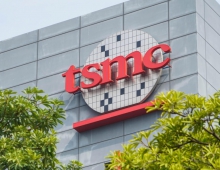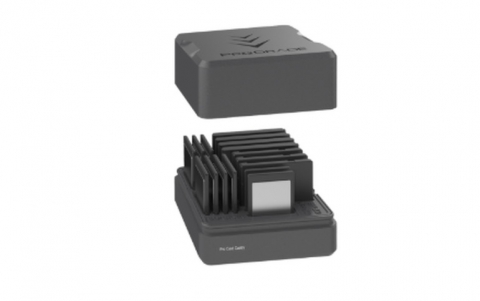
TSMC to Start Production of 5nm A14 Chip for Upcoming iPhones
TSMC appears to be the exclusive supplier of Apple’s custom iPhone SoC chip designs.
Digitimes reports that the foundry will begin manufacturing the A14 chip for this year’s iPhones in the second quarter. The new chip will be manufactured using TSMC’s new 5 nanometer production process, down from 7 nanometer fabrication seen in the A12 and A13.
The 2020 iPhone lineup is expected to be a refresh in terms of hardware, featuring a new iPhone-4 esque design, an OLED lineup with tweaked screen dimensions, a new 3D ToF sensor for the rear camera, and support for fast cellular data speeds with 5G.
Apple is expected to announce its new iPhone lineup in the fall.
TSMC is also rumored to have received orders from Apple for antenna modules with its InFO_AiP (antenna in package) technology. These modiles will be used in 5G mmWave iPnones.
As much as two thirds of TSMC's available 5nm process capacity will be utilized to make the next-generation iPhone chips, the Digitimes report said, citing sources at fab toolmakers.
TSMC has already moved 5nm process technology to risk production. HiSilicon is reportedly the other initial customer of TSMC's 5nm process.
TSMC's capital expenditure will rise to between $14 and $15 billion USD in 2020, which is significantly higher than 2019's $10-$11 billion expenditure. The increase consists largely of investments in expanding the company's output of 7nm products, as well as creating a large 5nm production capacity.
Currently, the huge demand for 7nm silicon stems largely from AMD, as TSMC is manufacturing for both AMD' Ryzen 3000 CPUs and Navi GPUs such as the RX 5700 and RX 5700 XT, all which are on the 7nm process. Apple also uses 7nm for the current iPhone 11, along with a heap of other customers.
2020 will see more products migrating to 7nm silicon, such as budget-friendly iPhone SE2 which will also be launched in 2020 with 7nm silicon.
Meanwhile, Samsung foundry has completed the development of a 5-nm FinFET process tech based on extreme ultraviolet technologies in April last year. And it is working on the next-generation nanometer process tech --the 3-nm gate-all-around process technology.
GAA is known as an architectural successor to the current FinFET technology, which enables chipmakers to push further the nanometer range for microchips.
Compared with the 5-nm process, the 3-nm GAA tech provides an increase of more than 35 percent in logic area efficiency with 50 percent lower power consumption and about 30 percent higher performance, according to Samsung.
Last year, Samsung announced a 133 trillion won ($111.85 billion) investment plan with the goal of becoming the world’s top maker of systems on chips by 2030.




















